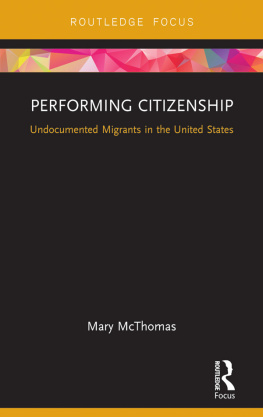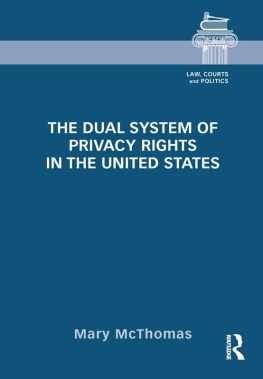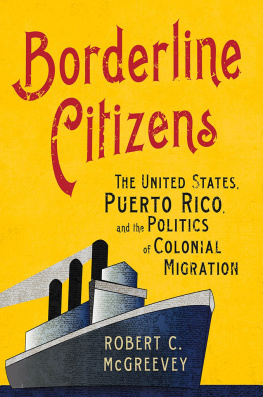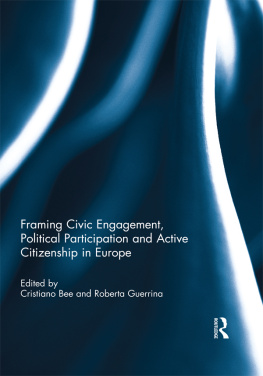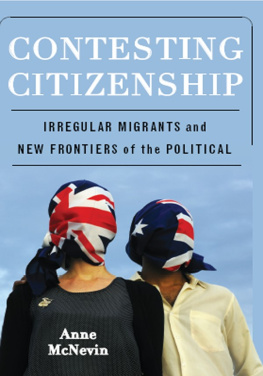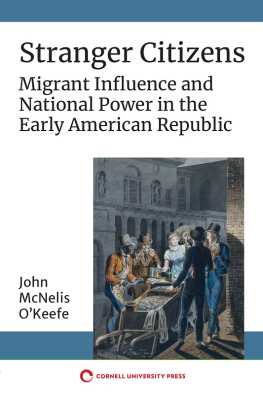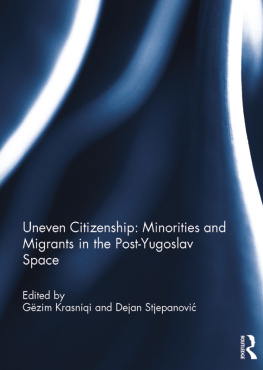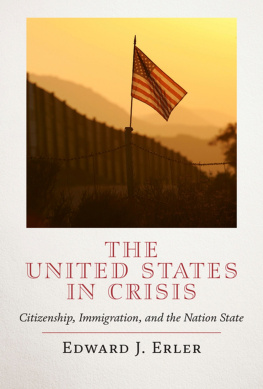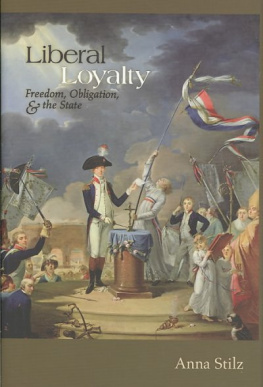Dr. Mary McThomas, in her ground-breaking book, provides a much needed re-examination or re-interpretation of the concept of citizenship in the US. By challenging the narrow and restrictive concept of citizenship with her performing citizenship counter-narrative, she provides us allscholars, elected officials, residents, etc.with a more inclusive and just approach of how we treat the most vulnerable among us: undocumented immigrants. Given the rise of xenophobia in this country, not just with Donald Trump but also with his many supporters and like-minded American leaders, those of us who seek justice and dignity for the other, need to reconsider existing theories and paradigms that perpetuate a system of inequality and exploitation for those who live and work in Americas shadows.
Alvaro Huerta, Ph.D., is an assistant professor of urban and regional planning and ethnic and womens studies at California State Polytechnic University, Pomona. He is the author of Reframing the Latino Immigration Debate: Towards a Humanistic Paradigm .
Performing Citizenship
Undocumented migrants in the United States raise compelling questions about political legitimacy, obligation, and citizenship. If they are truly members of their communities, should they have a voice in the laws and policies that impact their lives? Should their interests be considered, especially in light of exploitation by employers, the possibility of detention, and the threat of deportation? This book argues that we do indeed owe certain moral and political obligations to those individuals who have been living and contributing to their communities, regardless of whether they initially arrived without documents. McThomass argument is based on flipping the way we think about political obligation and state-granted citizenship. Instead of the conventional understanding that the conferral of rights by the state obligates citizens to perform certain duties, she argues that the performance of civic duties and obligationsperforming citizenshipshould trigger corresponding rights and protections. The book combines theory and practice to make this argument, analyzing state-level legislative debates about extending driving privileges and in-state tuition rates to undocumented residents. Consistent with the books main argument, we see contested notions of what constitutes citizenship in these debates and a growing acknowledgment that those who perform citizenship deserve certain rights and privileges.
Mary McThomas is Assistant Professor of Political Science at California State University, Channel Islands. Her primary research interests include political theories of citizenship, immigration law and politics, the right to privacy, gender and politics, and political ethics.
First published 2016
by Routledge
711 Third Avenue, New York, NY 10017
and by Routledge
2 Park Square, Milton Park, Abingdon, Oxon, OX14 4RN
Routledge is an imprint of the Taylor & Francis Group, an informa business
2016 Taylor & Francis
The right of Mary McThomas to be identified as author of this work has been asserted by her in accordance with sections 77 and 78 of the Copyright, Designs and Patents Act 1988.
All rights reserved. No part of this book may be reprinted or reproduced or utilised in any form or by any electronic, mechanical, or other means, now known or hereafter invented, including photocopying and recording, or in any information storage or retrieval system, without permission in writing from the publishers.
Trademark notice: Product or corporate names may be trademarks or registered trademarks, and are used only for identification and explanation without intent to infringe.
Library of Congress Cataloging-in-Publication Data
Names: McThomas, Mary, author.
Title: Performing citizenship : undocumented migrants in the
United States / Mary McThomas.
Description: New York, NY : Routledge, 2016. | Includes bibliographical
references and index.
Identifiers: LCCN 2016007301 | ISBN 9781138684096 (hbk) |
ISBN 9781315544175 (ebk)
Subjects: LCSH: Illegal aliensGovernment policyUnited States. |
Illegal aliensGovernment policyUnited StatesStates. |
CitizenshipPolitical aspectsUnited States. | Illegal aliens
Education (Higher)United States. | Drivers licensesUnited
StatesStates.
Classification: LCC JV6483 .M336 2016 | DDC 325.73dc23
LC record available at http://lccn.loc.gov/2016007301
ISBN: 978-1-138-68409-6 (hbk)
ISBN: 978-1-315-54417-5 (ebk)
Typeset in Sabon
by Apex CoVantage, LLC
For the next generation: Taylor, Parker, Carson, Chad, Kiefer, Kyra, Jules, and future Tesler children. You inspire me to try to make the world a betterand more justplace.
Contents
I am truly grateful for the feedback I received throughout the course of this project. The book benefited greatly by comments from discussants, fellow panelists, and audience members at annual conferences for the American Political Science Association, the Association for Political Theory, and Wayne State Universitys Center for the Study of Citizenship. I am also extremely thankful to the Political Theory Group at University of California, Irvine, for offering a dedicated and engaged discussion of the project. Special gratitude is due to Els de Graauw, Emily Hallock, and Michael Tesler for thoughtful (and written!) comments on various aspects of the book. In the busy lives we all lead, it is a rare gift to get such thorough and helpful feedback. In addition, I am grateful for assistance provided by my colleagues at California State University, Channel Islands. The fine people of Research and Sponsored Programs provided funding. RSCA (Research, Scholarship, and Creative Activities) Business offered interdisciplinary viewpoints and a supportive sounding board. Finally, Scott Frisch, Department Chair Extraordinaire, helped to protect my time. Last, but certainly not least, I would like to thank Natalja Mortensen, Lillian Rand, and everyone else at Routledge who helped me navigate the publishing process.
1
Introduction
Undocumented migrants in the United States raise some compelling questions about political legitimacy, obligation, and citizenship. If they are truly members of their communities, should they have a voice in the laws and policies that impact their lives? Should their interests be considered, especially in light of exploitation by employers, the possibility of detention, and the threat of deportation? At the same time, though, granting a voice to those who entered the country without nation-state authorization is not without complications, including concerns about the sovereignty of the pre-existing political community. Central to democratic legitimacy and individual autonomy is the ability to know who is author of the laws to which we submit. That is, popular sovereignty rests on the notion that we govern ourselves (even if through representatives) and, in so doing, consent to and legitimate state authority. If we are a government of the people, by the people and for the people, we need to know who constitutes the people. The fear is that porous borders can change the membership of the political community and therefore alter the we that makes up popular sovereignty, leaving existing citizens subject to a new and extended sovereign to which they did not consent. I submit that the role of consent is flawed, the we has already changed, and a substantial number of people in the United States are bound by laws that they have no say in creating. Furthermore, without status or standing, they have no hope of being heard or represented in the future.

